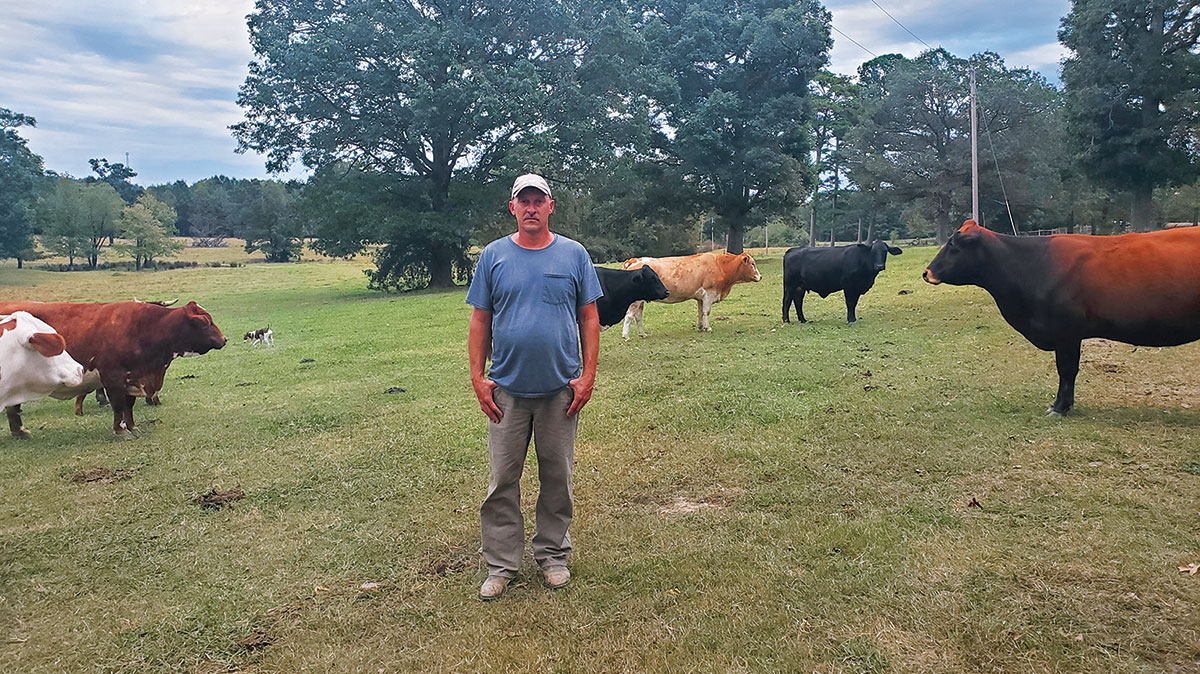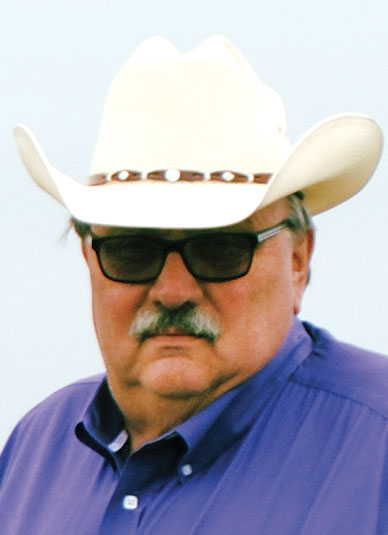
When Wayne Olles’ parents reduced their herd size, they helped Wayne start his own operation
Wayne Olles was born and raised in Bigelow, Ark., on a small farm that was farmed by grandparents, then his parents.
After high school, Wayne attended college for five semesters before deciding he was “smart enough” and was unsure what direction he wanted to take.
Consequently Wayne’s soon-to-be wife Bobbie joined the Air Force and they left Arkansas a few years. In 1993, the couple returned to the Natural State, whereupon Wayne enlisted in the Arkansas National Guard. The couple then used the G.I. Bill to finish their degrees at the University of Central Arkansas and American Military University. Bobbie became a junior high school math teacher for 16 years before working for the Arkansas Department of Education in licensure, while Wayne earned a degree in military management and is a maintenance manager for the Arkansas National Guard.
When the couple moved back, Wayne’s parents, Leon and Laura, provided a place for Wayne and Bobbie to live. In return, Wayne helped his father with a 55-head commercial cattle herd, especially during the haying season and when the cattle needed to be worked.
Later Leon decided to downsize and gave Wayne and Bobbie 10 cows to start their own herd. Now Wayne and Bobbie use the Olles family land for a Beefmaster and Beefmaster-cross herd of 40 females bred by a registered Beefmaster bull. Because both Wayne and Bobbie work full time, the bull remains with the females year-round and calves are marketed in groups weighing 550 to 700 pounds.
“I really like the Beefmaster breed because of its docility and heterosis,” Wayne said. “You won’t find any wild cows here since they are off to the sale barn as soon as they are identified. I sell most of my calves as commercial beef or commercial breeding stock, therefore I don’t register many. Commercial buyers don’t care about papers. On the other hand, I do have a few registered females and will register any of their calves with exceptional potential.”
Wayne retains 10 to 15 percent of the heifers as replacements and three to four steers serving as a source for USDA processed meat sold at the Conway Farmers’ Market, held at the Antioch Baptist Church’s parking lot on Amity Road on Saturdays.
The herd is raised on 80 acres around the Olles Farms homestead, with the remaining nearby 65 acres used as hay ground. Due to Wayne and Bobbie’s busy schedules, pastures and hay ground, consisting mostly of Bahia and Bermuda grasses, are fertilized only as needed and are typically spot sprayed for weeds, especially for horsenettle.
Recently Wayne came upon a unique opportunity. A brewery in North Little Rock, Ark., Flyway Brewing, needed a farmer to pick up their spent brewers grain. Wayne was able to start picking up their grain. He had it tested and discovered it was very high in protein and total digestible nutrients. The farm has since added a commercial pig operation to have another source of meat for the farmers market.
“I really enjoy the farmers market because people ask questions and I like explaining what we do. The added benefit is developing better educated consumers,” Wayne explained. “They learn that my animals are pasture raised and supplemented with spent brewers grain and now know exactly what that means.”
The pig operation is small but productive with three Hereford/Red Wattle cross sows and a purebred Red Wattle boar. Wayne likes the heritage Red Wattle breed because it is docile and produces tender meat. Breeding is spread out so pigs are always available for processing and marketing. Each sow has at least two litters per year that reach processing weight in seven months. The pigs are pastured in paddocks or “pig tractors” which are moved every couple of days so they always have fresh grass. In addition, pigs receive the lion’s share of the spent brewers’ grain, with a small amount going to the cattle.
“None of this would be possible without my wife who helps feed every afternoon as well as moving pig tractors and our personal laying hens,” Wayne said. “She’s with me every step of the way.”
Using the G.I. Bill was a critical crossroad in their lives. Of course, the Veterans Association has programs to help all veterans such as the G.I. Bill that helped Wayne and Bobbie get their degrees. However, less well-known programs are designed to help veterans become farmers, even if they have no background in agriculture. Farming allows veterans to be their own bosses, a quality that helps transitioning to civilian life.
Most of the programs are connected to the USDA with the Agricultural Innovation Agenda as an example. The goal is to increase America’s production by 40 percent while decreasing its footprint by 50 percent by 2050. This is to be accomplished using veterans with their diverse experiences and strong work ethic in conjunction with cutting edge technologies and practices. Student farms provide hands-on training that can result in sustainable farming certification or a two year associate degree though other programs have four year options as well. The Armed to Farm program provides training through conferences, two day workshops and week-long training events.







